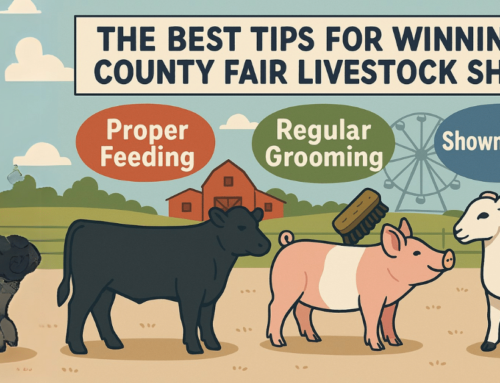There’s something truly special about walking into a county fair and catching the warm, sweet aroma of fresh-baked pies, cookies, and cakes. Among the livestock exhibits and Ferris wheels, the baking contest table often holds a place of pride.
How to Enter a County Fair Baking Contest: Step-by-Step Guide
For many, entering the baking contest is more than just a fun experience it’s a tradition, a test of skill, and a way to connect with the community.
If you’ve ever thought, “I’d love to enter my cookies in the fair,” but didn’t know where to start, this guide will walk you through every step.
The Contest and Its Rules
Before you preheat the oven, you need to understand the rules of the game. Each county fair may have slightly different guidelines, so it’s important to do your research well ahead of time.
How to Find a Contest
Start by visiting your local county fair’s website. Most fairs have a section dedicated to contests, including baking and other culinary competitions. If you can’t find the information online, a quick call to the fair’s office can clarify deadlines and requirements.
Read the Guidelines Carefully
Each baking contest has its own set of rules, and reading them thoroughly is non-negotiable. You’ll find details like:
- Age categories (youth, adult, senior)
- Accepted recipe types (e.g., quick breads, pies, cookies, decorated cakes)
- Specific ingredients you must avoid (e.g., alcohol, nuts)
- Container requirements and entry tags
Not following these rules can lead to automatic disqualification, no matter how delicious your entry is.
Registration Process
You’ll usually need to register in advance. This may involve filling out a form online or mailing in an entry form. Some fairs charge a small entry fee, while others are free to join. Registration deadlines often close weeks before the fair, so don’t wait too long.
Choose the Right Recipe
Once you’re clear on the rules, it’s time to decide what you’ll bake. This is where personal taste, experience, and a little strategy come into play.
Stick with recipes you’ve already made successfully. Now isn’t the time to test something new from scratch. It’s better to perfect an old favorite than struggle with an unfamiliar method.
Consider the Following When Picking a Recipe:
- Consistency: Go with something that turns out well every time.
- Flavor Appeal: Judges often prefer classic, familiar flavors like vanilla, lemon, or chocolate.
- Seasonality: Bake with ingredients that fit the time of year. Berry pies in summer or apple desserts in fall often perform well.
- Visual Appeal: Choose a dish that looks as good as it tastes.
Practice Makes Perfect
Even if you’ve baked your chosen recipe a dozen times, a little extra practice won’t hurt. In fact, it can make a big difference when you’re preparing for a judged competition.
Tips for Practicing Your Recipe:
- Bake multiple test batches to refine flavor and texture.
- Let family or friends taste test and give you honest feedback.
- Try different presentation styles to see what looks the best.
- Time yourself so you know how long the full process takes.
The goal isn’t just to make something tasty but to consistently create the same high-quality result under mild pressure.
Focus on Presentation
Judges won’t just be tasting your baked goods they’ll be looking at them too. Appearance often makes the first impression, and it can tip the scale between two entries that taste equally good.
Follow These Presentation Tips:
- Uniform Size and Shape: Whether it’s cookies or cupcakes, make sure each one is the same.
- Use Fresh Ingredients: No one likes a wilted garnish or a soggy crust.
- Clean Finish: Wipe off any crumbs from your plate or container before submission.
- Proper Packaging: Use the containers specified in the rules. Label everything clearly and include a recipe card if requested.
Prepare for Contest Day
When contest day arrives, preparation is key. You don’t want to be scrambling at the last minute or forget something important.
What to Bring With You:
- Your finished baked entry
- Entry form or proof of registration
- A printed recipe card (if required)
- Clean serving utensils (check if necessary)
- Napkins or small extras to tidy up
Arrive a bit early so you can settle in without stress. Presentation stations can get busy, and judges may stick to a tight schedule.
Common Mistakes to Avoid
Even experienced bakers can stumble in competitions if they aren’t mindful of a few common pitfalls.
Watch Out for These Issues:
- Ignoring the rules: Missing an ingredient restriction or wrong container can disqualify you.
- Overcomplicating your recipe: Too many layers or rare ingredients may not work in your favor.
- Last-minute recipe changes: Stick to what you practiced.
- Unstable ingredients: Avoid whipped cream or fresh fruit that won’t hold up.
- Poor time management: Give yourself enough time the night before to bake, cool, and transport your entry.
What Happens After You Enter
Once your entry is submitted, the judging process begins. This can take a few hours, depending on the number of participants and categories.
You may not see the judging itself, but many fairs post feedback later or allow you to read judge comments. Regardless of the outcome, take this as a learning opportunity.
If You Win:
- You might receive a ribbon, small prize, or even local press recognition.
- Your name could be featured on the fair website or newsletter.
If You Don’t:
- Take note of what the winners did differently.
- Ask for feedback if available some judges leave notes.
- Talk to fellow participants and learn from their experiences.
Tips for the Next Contest
Whether you win or not, every baking contest is a chance to grow your skills and meet others who love baking just as much as you do.
Keep These Tips in Mind for the Future:
- Join a local baking group to share ideas and advice.
- Volunteer at a fair to understand how the judging works.
- Watch baking shows for new ideas on flavor and presentation.
- Start a notebook to track feedback and recipe adjustments.
Conclusion
Entering a county fair baking contest is more than just showing off your kitchen skills. It’s a way to connect with your community, celebrate local traditions, and challenge yourself to keep learning. With a little planning, practice, and the right recipe, you’ll feel confident walking up to that contest table, entry in hand.










Leave A Comment
You must be logged in to post a comment.